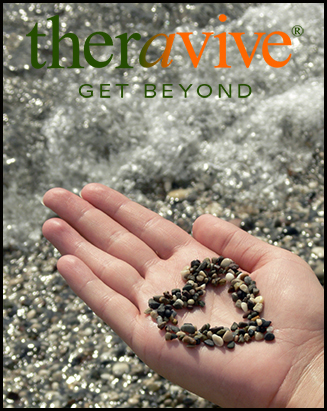November 20, 2014
by Caleen Martin

There have been teachers and visionaries from the past whose words continue to hold meaning regardless of when they were originally spoken. It's time to stop this cycle and really listen to what these teachers have to offer.
[More]
November 14, 2014
by David Porter, MA

Writing in a journal, or journaling, can serve as a valuable adjunct to psychotherapy. Keeping a journal is useful to gain and maintain perspective, to process stressors, generate ideas, and recognize functional and dysfunctional patterns in one's life. A journal can be a place for you to vent your emotions, and to take some private time every day to reflect on your life (Bodeeb, 2014). Journals can be used to record changes and milestones in life, and can also be passed on to the next generation as a part of family history.
[More]
For the entire time Alzheimer’s Disease has been around since first described, there has been no effective treatment. No medication to attack the multiple elements of the disease, no non-medical treatments to do more than blunt the effects of peripheral symptoms. But maybe that’s about to change.
[More]
November 4, 2014
by Caleen Martin

Your doctor informs you that you have an invisible disease which causes debilitating pain throughout your body. You may lose your job, have to fight for benefits. You have to deal with doctors who think you're lying about your condition and symptoms and become a guinea pig in order to find the most effective medications and therapies.
[More]
October 9, 2014
by Marti Wormuth, MA

Many people in today's world say that they want to make a difference in the lives of others. But some people feel absolutely helpless to do so. The good news is - you're not! There are a lot of things that you can do in order to help other people out, and it actually has a number of mental health benefits for you as well. In today's post, we're going to look at some of the things that you can do to help other people and how it can help you to heal and stay healthy emotionally.
FB- You know that helping others is good for your heart, but did you know it's also good for your mind? Here are some easy ways to help others while helping yourself at the same time.
[More]
October 8, 2014
by Marti Wormuth, MA

Many people make the mistake of assuming that mental health is just its own thing, but that actually isn't the case. Mental health is part of a whole. The whole body is connected and it's important to understand how this works and why our mental health can end up affecting the health of the rest of our body's health.
[More]
September 16, 2014
by Marti Wormuth, MA

When you think of meditation, what do you think of? Some people picture holy people, like nuns and monks, all together, silently in a room, While that can definitely be a form of meditation, it's actually a lot more than that, and meditation can play a significant role in helping you to have optimum mental health. It's true! In this post, we're going to take a look at what meditation really is and how it can assist you in achieving the best mental health that you can have.
[More]
June 7, 2014
by Christie Hunter

Contrary to the perception that balanced nutrition is only important for physical health; it also plays a vital role in emotional well-being (Bamber, 2007).1 It is a fact that a number of people don’t know that nutrition plays a major role in preventing hormonal imbalances and ensuring good mental health. There is no denying the fact that factors like therapies, counseling and discussing problems with people are very important for peace of mind but without nutritional support, no therapy is effective enough to ensure complete mental health.
This article will discuss and highlight some of the major emotional issues due to malnutrition and highlight the importance of proper diet for improved mental health and emotional well-being.
[More]
May 14, 2014
by Caleen Martin

Being selfish has always been considered a trait to avoid. We're taught to give to others, to be selfless and caring. Many times however, we take our selfless acts to such an extreme that we are giving to others at the expense of our own welfare. This happens most often with our children and partners.
[More]
May 7, 2014
by Caleen Martin

Change Your Words, Change Your Worth is the mantra used by Adam Braun, founder of Pencils for Promise. His story is about the language of business and how he found a creative way to engage with other prominent entrepreneurs and not lose them the moment he began discussing his non-profit organization. Braun realized very early on that the terminology he used could make or break the connections he formed in the business world. Those of us living in the world of Fibromyalgia have also found this same issue regarding the discussions we have about our health.
[More]